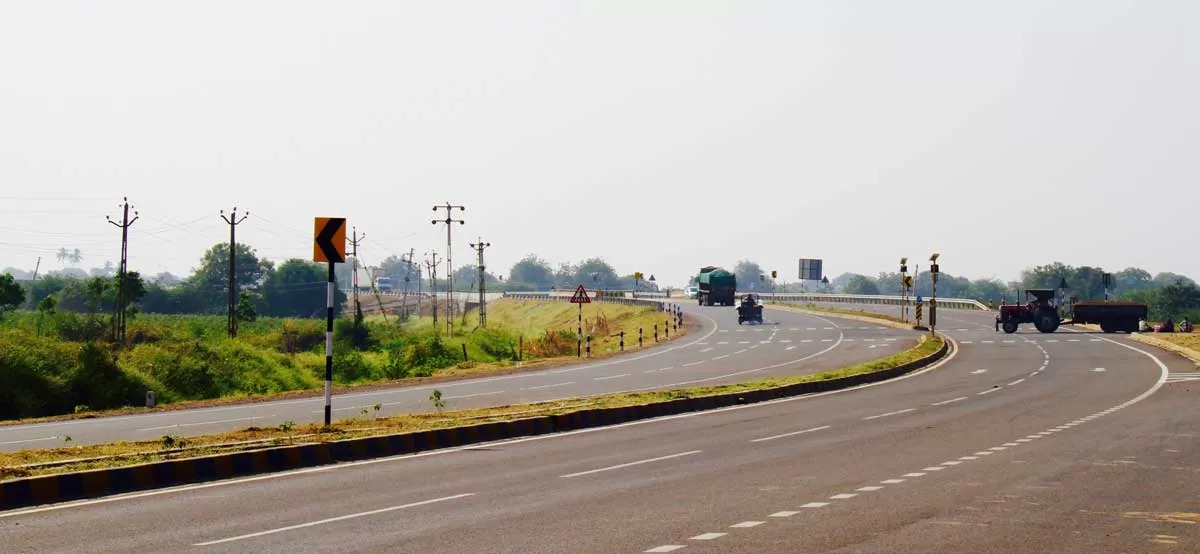The central government has approved six major road projects across Bihar, marking a significant push to enhance infrastructure and connectivity within the state. These initiatives aim to improve road networks between key districts, boost regional trade, and make travel more efficient for residents. With construction anticipated to commence this year, this strategic investment is viewed as a crucial step towards accelerating sustainable development, particularly in rural and border areas, fostering a more equitable and eco-friendly transportation landscape.
The approval of these six new road projects underscores a concerted effort to address long-standing connectivity challenges that have historically impacted Bihar’s economic and social development. Improved road networks are fundamental to unlocking the full potential of both urban centres and rural hinterlands, facilitating the seamless movement of goods, services, and people. This enhanced mobility is critical for integrating regional markets, reducing logistical bottlenecks, and attracting further investment, thereby stimulating economic growth across diverse sectors. The central government’s commitment to these projects signals a strategic focus on strengthening Bihar’s foundational infrastructure.
Among the key projects is the extension of the Patna–Purnia Expressway to Dighwara, which promises to significantly reduce travel time and distance between the state capital and Purnia. This extension will also provide crucial better connectivity between North Bihar districts and Patna, streamlining commutes and fostering greater economic interaction. Similarly, the Muzaffarpur–Barauni Road will link two major industrial and educational hubs in North Bihar, ensuring smoother and quicker travel for commuters and facilitating trade. These upgrades are vital for creating efficient transport corridors that minimise fuel consumption and vehicular emissions, contributing to a zero net carbon environment.
The strategic importance of these projects extends to border regions as well. The Muzaffarpur–Sonbarsa Road, connecting Sonbarsa near the Nepal border to Muzaffarpur, is poised to significantly boost trade and movement in this sensitive area. This improved cross-border connectivity can unlock new economic opportunities for local communities and enhance regional security. Other vital routes include the Khagaria–Purnia Road, linking two key cities in eastern Bihar, and the Chhapra–Gopalganj Road, which will reduce travel distance between two major districts in western Bihar. These roads are designed to benefit daily commuters and promote agricultural and business activities by providing efficient access to markets and services.
Furthermore, the Araria–Parasram Road, passing through Araria district and reaching Parasram, is set to become a vital route in the border region. Collectively, these road projects are designed to bridge the gap between rural areas and urban centres, thereby improving access to essential services such as jobs, education, and healthcare for rural populations. This enhanced accessibility is a cornerstone of equitable and gender-neutral development, ensuring that all citizens, regardless of their location, have the opportunity to participate fully in the state’s progress and access necessary resources.
The approval of these projects is expected to provide a substantial boost to Bihar’s overall infrastructure development. By strengthening the transport and logistics sector, these initiatives are poised to encourage more investment in the region, creating employment opportunities and fostering a more dynamic economic landscape.
The focus now shifts to the timely construction and completion of these projects, ensuring that their benefits can reach the public as swiftly as possible. This commitment to efficient project execution is crucial for maximising the positive impact on local communities and for demonstrating the government’s resolve in delivering on its developmental promises. Ultimately, these road projects in Bihar represent more than just concrete and asphalt; they symbolise a strategic investment in the state’s future prosperity and sustainability. By enhancing connectivity, promoting economic activity, and ensuring equitable access, they are laying the groundwork for a more integrated, resilient, and environmentally conscious Bihar, contributing significantly to the national vision of building smart, green, and inclusive cities.
Also Read :Centre Approves Rs 1,853 Cr Four-Laning of NH-87 in Tamil Nadu


